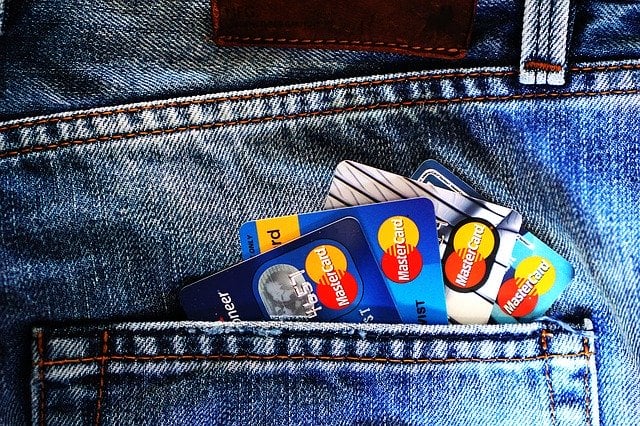
Can You Recycle Credit Card Plastic? And How To Dispose Of It 💳
Can You Recycle Credit Card Plastic? 💳: We here on Waster always want to give you tips on how to reduce your environmental impact. For this blog, I will discuss the recyclability of credit cards. Additionally, I will also talk about other types of cards. Read on to learn more.
>>Download Now: Free PDF Business Owners Guide To General Waste Bin Services
A bit about Waster
Before we discuss whether you can recycle credit card plastic or not, let me share with you more information about Waster.
We here at Waster provide you with innovative solutions for your and your business’s waste management and recycling needs. Furthermore, we provide flexible, 30-day contracts instead of the typical lock-in contracts, which proves to be better.
Click on the blue button to learn more.
READ: Can You Recycle Fridge Magnets? 🧲
You cannot recycle credit card plastic
Basically, you should find other ways to dispose of your credit card plastic because they are very hard to recycle. You have the plastic part to thank for that. Up until now, plastic haunts us, being a very bothersome material to dispose of, much less recycle. I will further elaborate.
The first thing to remember here is that most credit cards produced are made from polyvinyl chloride or PVC for short. This is a synthetic plastic polymer widely used in all aspects such as buildings, electronics, health care and automobiles. Examples of materials with PVC include windows, cables, pipes, flooring, and rainwater systems. And obviously enough, this type of plastic is hard to recycle.
We should also remember that incinerating it is not a good thing to do. In fact, it will toxicate the environment gravely.
But you cannot just dispose of it that easily, either. Doing so compromises your data. If it falls into the wrong hands, some might get and use the information they get from your discarded credit card in all the wrong ways.

What about shredding before you recycle credit card plastic?
Big card brands like Visa and Mastercard generally advise you to cut up your credit card to protect your data. But take note that if you do find a facility that recycles credit card plastic, do not cut up the card. According to creditcards.com, recyclers will not shred and cut up your credit cards if it is already torn up or shredded prior to recycling. In other words, you should only send credit card plastic in a complete, good quality without torn parts for them to recycle it.
Negative effects of improper disposal of credit cards
Even with its small stature, credit cards will wreak havoc on the environment if disposed of improperly. Here, I will state the hazards it poses to the environment:
1. It contaminates the groundwater
The first thing a credit card plastic does if you fail to recycle or dispose of it properly is contaminate the groundwater. As I have already discussed in past blogs, leaving certain items – in this case, credit cards – in landfills to rot may result in them releasing toxins that mix up with water. This toxic concoction is called leachate.
2. This also contaminates the air
Additionally, credit cards disposed of in landfills can also release toxic dioxin when a landfill fire occurs. Burning plastic releases dangerous chemicals like sulphur dioxide, heavy metals, hydrochloric acid, and others in the air.
What about gift cards? Are they recyclable?
Now that we know that it is close to impossible to recycle credit card plastic, what about gift cards? Maybe somebody gave you gift cards, only for you to find out that they are all expired. Can you recycle them?
Apparently, Woolworths has the means to do so! In the past, customers complained of their gift cards having expiration dates. As a result, in March 2018, they happily agreed and removed the expiry date. This was met with a lot of praise from people. The only thing to do now is to dispose of the already-expired ones. How do they do that? How do they dispose of 1.5 million tallied expired gift cards without harming the environment?
To solve this, they partnered up with Close The Loop. Their then-newfound partner specialises in finding solutions to turning what was once a deemed unrecyclable item into recyclable. They practise the efficient recovery and reuse of the products of their partners.
Much like credit cards, Woolworths’ gift cards are also made from PVC, along with plastic and cardboard. As a result of this beneficial partnership, their expired gift cards were used to help create energy!
How does the process take place?
The PVC and plastic found on their gift cards contain a lot of energy. They used the energy gathered from the PVC and plastic to fuel cement kilns. And do not worry, even though I said that burning them is a bad thing, this is not the case with this process.
By observing and following this process, the environmental toxins emitted from the PVC and plastic are captured by the cement, instead. Furthermore, you can also recycle cement and concrete. Read our blog on cement recycling to learn more.
What about the cardboard found? Well, it is also recycled! As many of us know by now, cardboard is one of the easiest materials to recycle. Recyclers turn them into new cardboard. Businesses seeking packaging usually buy this type of cardboard.
Can you recycle credit card plastic? Here’s our final verdict!
Much like any other materials with plastic as a predominant ingredient, recycling them is hard. You also cannot dispose of them casually as they may harm the environment in various ways. Furthermore, if you do find recyclers willing to take them, you have to make sure that they are in tip-top shape without tears. That means you cannot cut them up to protect your data.
Fortunately, there are some who have found ways how to handle cards containing PVC. An example is Woolworths, wherein they partnered up with Close The Loop to create energy from expired gift cards.
Check our blog on secure document destruction to learn more about protecting your data.
Waster: Things You Need To Know
If you’re looking for recycling bins, check our waste recycling shop and find the best deals in terms of pricing and services.
Also, please call 1300 WASTER (1300 927 837), or email us at enquiries@waster.com.au if you have any further questions.
Leave a Reply Cancel reply

Product categories
Most Popular Posts
-
Commercial Waste Management Services: Reduce Waste Collection Costs! 🚍
-
Medical Waste Disposal: Everything You Need To Find Out In 2024! 💉
-
Rubbish Removal Sydney 2024: Better Bin Collections For Business ✅
-
Clinical Waste Disposal 2024: What To Know About Business Clinical Waste ⚕️
-
Secure Document Destruction 2024: All About Security Bins Shredding 🔒
-
Free Cardboard Recycling 2024: Can I Get Free Cardboard Collection? 📦
-
Confidential Paper Disposal Bins 2024: What You Need To Know About Shredding! 🔒
-
Recycling Bins Australia 2024: Recycling Can Boost Your Profits! ♲
-
Commercial Wheelie Bin Collection: What Businesses Need To Know In 2024 🗑️
-
Commingled Recycling 2024: Why Commingled Bin Is Key To Recycling 🍾













